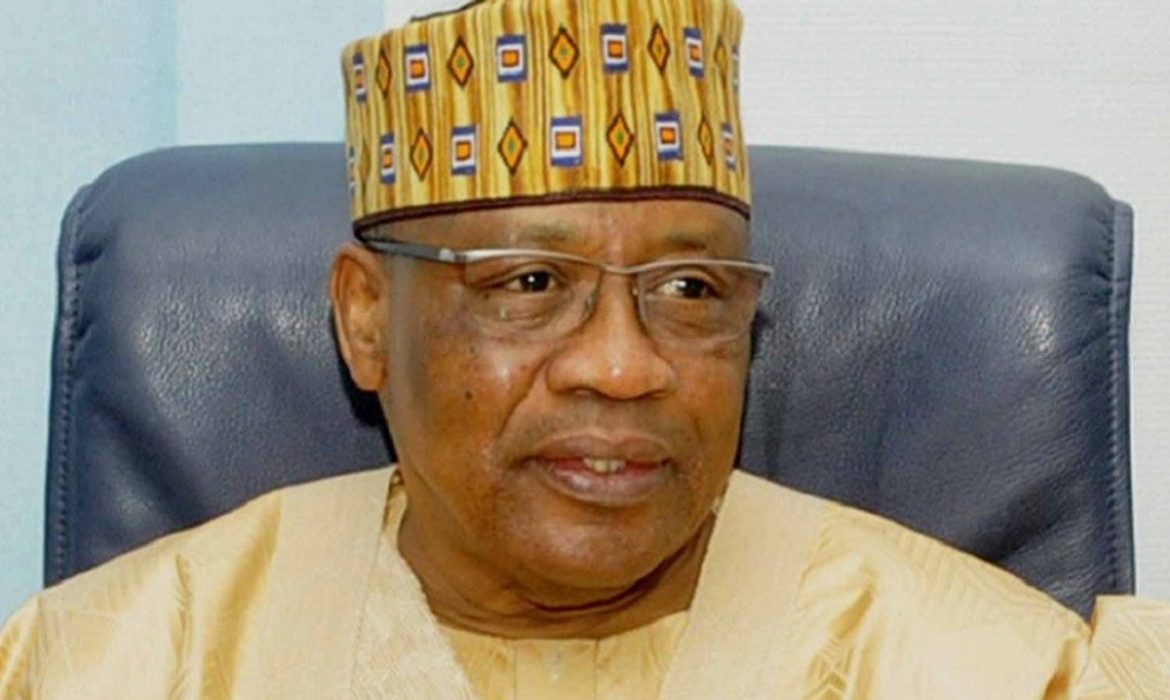Senator Adams Oshiomhole has knocked the former Chairman of the defunct National Electoral Commission (NEC), Humphrey Nwosu, for his role in the June 12, 1993 presidential election.
The election, said to be one of the freest and fairest in the annals of the nation’s history, is believed to have been won by the late businessman and industrialist, Moshood Abiola, of the Social Democratic Party (SDP).
32 years later, Oshiomhole, who represents Edo North in the National Assembly, faulted Nwosu for not declaring the result of the election he presided over.
He argued that heaven would not have fallen if Nwosu made the move, stressing that in the worst case scenario, the military junta of General Ibrahim Babangida (rtd) would have imprisoned or killed him.
“If Nwosu had declared him, heaven would not fall,” the former Edo State Governor said on Channels Television’s Politics Today. “What may happen at best is that they will detain him and how do you now detain him because he has followed the law enacted by the military?”
“We told him that having organised the election up to the presidency, why won’t you just do the next step of declaring the winner? Abiola died pursuing a mandate, he had to proclaim himself as the winner, which Nwosu was going to do.
“If Abiola can have the courage, Abiola was not a militant. He wasn’t a Professor of Political Science; he was basically a businessman, but he had enough courage to say ‘I won this election.’ Someone who has the background in Political Science ought to be able to do even better than that.”
‘IBB Annuls Election’
Nigeria’s Military President at the time, General Ibrahim Babangida annulled the June 12, 1993 presidential elections, thus dumping his promise to hand power back to elected civilians.
Babangida made the announcement in a decree he signed, saying “These steps were taken to save our judiciary from being ridiculed and politicized locally and internationally.”
The action was generated with criticisms both locally and internationally, with western diplomats and opposition figures in Nigeria, dismissing Babangida’s excuse for cancelling the elections as an attempt to extend military rule.
Babangida also suspended the National Electoral Commission – led by the late Professor Humphrey Nwosu – the main governmental body responsible for restoring democracy.
Held on June 12 in Nigeria’s 30 states, the presidential elections involved chunks of land that are in many instances more populous and wealthy than many African nations. Roughly one out of every four black Africans is a Nigerian.
Though the exercise witnessed light voter turnout, there was no evidence of the violence and vote-rigging. Foreign observers who witnessed the election described it as generally free and fair.
IBB Apologises 32 Years After
After more than three decades, Babangida finally broke his silence on the June 12, 1993, presidential election annulled by his regime.
In his newly released autobiography, ‘A Journey in Service,’ presented in Abuja on February 20, the retired general showed unusual courage and patriotism by admitting that late M.K.O. Abiola won the June 12 election in 1993.
General Babangida confirmed for the first time in 32 years that Chief Abiola had won the historic June 12 election based on collated results.
The annulment was a watershed moment in Nigeria’s democratic history, precipitating a political crisis and hastened his exit from power.
“As the leader of the military administration, I accept full responsibility for all decisions taken under my watch. And June 12 happened under my watch. Mistakes, oversights, and missteps happen in quick succession but I say in my book, in all matters, we acted in supreme national interest so that Nigeria could survive,” the former military president told the gathering.
“Our nation’s march to democracy was interrupted, a fact that I deeply regret. But Nigeria survived and democracy is still alive, a testament to our resilience and commitment to progress. This book is part of my personal story with national history,” Babangida said.

